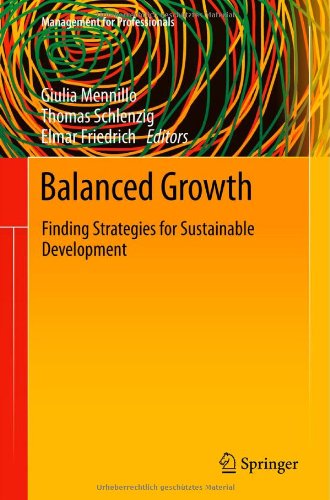

Most ebook files are in PDF format, so you can easily read them using various software such as Foxit Reader or directly on the Google Chrome browser.
Some ebook files are released by publishers in other formats such as .awz, .mobi, .epub, .fb2, etc. You may need to install specific software to read these formats on mobile/PC, such as Calibre.
Please read the tutorial at this link: https://ebookbell.com/faq
We offer FREE conversion to the popular formats you request; however, this may take some time. Therefore, right after payment, please email us, and we will try to provide the service as quickly as possible.
For some exceptional file formats or broken links (if any), please refrain from opening any disputes. Instead, email us first, and we will try to assist within a maximum of 6 hours.
EbookBell Team

5.0
88 reviewsWhat is balanced growth? This book shows that the definitions and implications of the concept of balanced growth vary significantly among the different disciplines in economic science, but are not exclusive at all.
Terms such as sustainabilityor balanced growthhave become buzzwords. In practice, they are often a desirable vision rather than an achievable objective. Why? Doubts may arise about the extent to which such concepts are compatible with a modern market economy. Is balanced growth possible at all? Is it reasonable to accept balanced growth as a norm? Why should a balanced growth path be a desirable strategy to pursue for policymakers, managers, employees, and other societal stakeholders? Empirical evidence suggests that the actual worldwide economic growth is not balanced at all. Meanwhile, ever since the beginning of the financial and economic crisis in 2007 and its accompanying spillover effects, our globalizing world has uncompromisingly shown the flip side of its coin. Its crisis-prone character has intensified the discussion about our economic system’s sustainability. Questions related to acceptable sovereign debt levels, suitable trade deficits and surpluses, firms’ growth targets, resource management and efficiency have aroused high interest. What is the cause of the observed imbalances? In our opinion, this debate must involve rethinking the qualitative and quantitative dimension of our present understanding of the nature of economic growth.
This book accompanies the 9th DocNet Management Symposium of the University of St. Gallen, Switzerland. It contains contributions of the symposium's panel speakers, renowned authors to the field and young researchers. The Ph.D. students’ and post-doctoral association DocNet organizes the DocNet Management Symposium on a yearly basis with the goal to foster exchange between academia and practitioners.